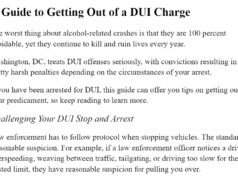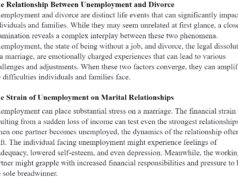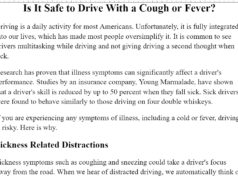SPONSORED CONTENT
What Is The Loss Of Consortium?
If your partner, spouse, or relative gets injured or dies because of another person’s negligence or intentional act, you can pursue a claim for loss of consortium. It is a form of personal injury claim.
This piece will explain the legal rules for pursuing loss of consortium and the compensation that may be available to you.
Understanding Loss of Consortium
It is a legal term describing the deprivation of benefits that an intimate or familial relationship gives. It includes loss of comfort, love, sexual intimacy, affection, and companionship.
Loss of consortium can lead to a personal injury claim. However, unlike other personal injury issues, the victim does not receive compensation. Instead, a close family member can institute this case because it mainly aims to relieve a lost affair.
When an individual sustains an injury or dies, it becomes impossible for their family members to share the same intimacy. Loss of consortium focuses on these damages and empowers loved ones or close relatives to get monetary compensation from the person or firm responsible for the loss.
The specific description of the loss of consortium differs by state. But generally, it is the loss of care, protection, fertility, comfort, society, marital intimacy, or safety.
Who Can Institute a Claim for Loss of Consortium?
Only very close relatives can bring a claim for loss of consortium. Conventionally, this includes spouses and domestic partners because the suit had the primary intent of providing compensation for the loss of a couple’s sexual intimacy and inability to have children. However, many states have expanded the net of who can get a loss of consortium damages.
It means that other family members, like children and parents of the victim, can recover damages for this loss, depending on their state policies. In this context, the compensation is a soothing relief to the loss of companionship, comfort, and shared life experiences.
If you need to learn your state’s stance, you can contact a lawyer to help present your claim.
Instances of Loss of Consortium
Examples include:
When a kid suffers a severe birth injury because of medical malpractice and becomes brain-damaged and disabled, parents may institute a loss of consortium case because of the loss of the ideal parent-child relationship.
When a wife or husband becomes paralyzed after a car crash and cannot engage in marital relations, the other partner can raise a loss of consortium claim.
Apart from these two situations, there are many other circumstances where you can raise a loss of consortium depending on the state laws.
How to Make a Claim for Loss of Consortium
Though the rules may differ by state, the following are the essential ingredients for a loss of consortium claim:
- The defendant intentionally committed the wrongful act or was negligent, which caused an injury for which you can hold the defendant liable
- The plaintiff had an intimate or close relationship with the victim before the incident
- Due to the injury or death, the plaintiff raised the loss of consortium claim will suffer from the loss of intimacy, normal relationship, or affection with the victim
Loss of consortium claims is usually part of personal injury claims that a victim files. For instance, an injured victim could pursue compensation for medical bills, pain and suffering, emotional distress, and lost earnings. Their partner could raise damages for loss of consortium.
Are There Limits on Damages for Loss of Consortium?
“Some states have limitations on compensation for some non-economic losses. For instance, in a medical negligence claim, the authorities can limit the amount of non-economic damages to a multiple of the actual economic loss,” says personal injury attorney Rustin Smith. The limits will influence the compensation a plaintiff could receive when instituting a claim based on loss of consortium.
An attorney may help ensure the defendant or insurer does not shortchange you.












